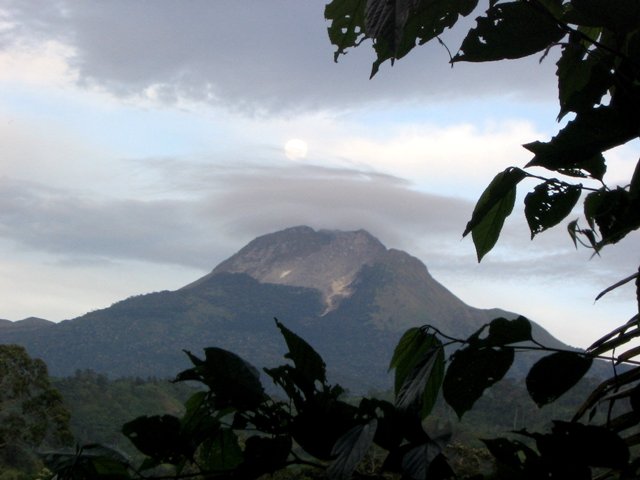Mount Apo-Kidapawan trails to reopen for Holy Week climb
KIDAPAWAN CITY —Mount Apo trekkers can expect that climb trails on the Kidapawan side of the mountain will be opened for the coming Holy Week, despite damage sustained from the series of strong quakes last last year.
Department of Environment and Natural Resources' Protected Area Management Board (PAMB)-Region 12 has not ordered the closure of the trails, a tourism official said.

Joey Recemilla, the chief of the Tourism and Investment Promotion Division of Kidapawan City, said the temporary closure of the trails to the highest mountain in the Philippines is a “self-imposed” decision of the local government unit for the trekkers' safety after the quakes that severely damaged some of the attractions in the province of Cotabato.
According to Recemilla, landslides during the quakes damaged some of the trails leading to the mountain’s peak.
But repairs are ongoing in preparation for the annual Holy Week climb —which may commence in March and end in April, 2020.
“We will open all trails in Kidapawan for the Holy Week climb. However, it will be a controlled climb,” Recemilla told GMA News Online in a phone interview on Wednesday.
Kidapawan's tourism and investment chief pointed out that controlled climb means only at least 50 climbers will be allowed to scale Mount Apo's summit each day in order to regulate the influx of trekkers on the mountain's peak.
“This is to strictly implement the carrying capacity policy of the mountain during the duration of the climb,” Recemilla added.
Last year at least two major climbs —the Summer Climb and the Octo Trek —were canceled due to forest fire and the series of quakes that affected Mount Apo.
Recemilla said the city tourism office in 2019 had recorded zero climb using the Kidapawan trails.
While some foreign and local tourists had booked with various travel agencies in 2018 and 2019, all reservations were canceled due to the forest fire and the earthquakes.
“The tourism industry in those years has not gained any revenue,” Recemilla added.
He said the calamities had great impact on the local tourism industry, rendering the hundreds of porters and “habal-habal” drivers jobless.
Also, indigenous communities earning a living from the Mount Apo tourism had lost opportunities to earn from the influx of visitors.
Earlier, tribal elders pleaded with local authorities to reopen Lake Agco (a boiling lake) to tourists, but they have yet to get a reply for their request.
Recemilla stressed that the city government is concerned about the safety of the visitors and the guides because the Mines and Geosciences Bureau (MGB) has not issued any manifest regarding the integrity of the trail leading to the lake.
“We will wait for the nod of the MGB whether it is safe to open the Lake Agco,” Recemilla said. —LBG, GMA News

Need a wellness break? Sign up for The Boost!
Stay up-to-date with the latest health and wellness reads.
Please enter a valid email address
Your email is safe with us





